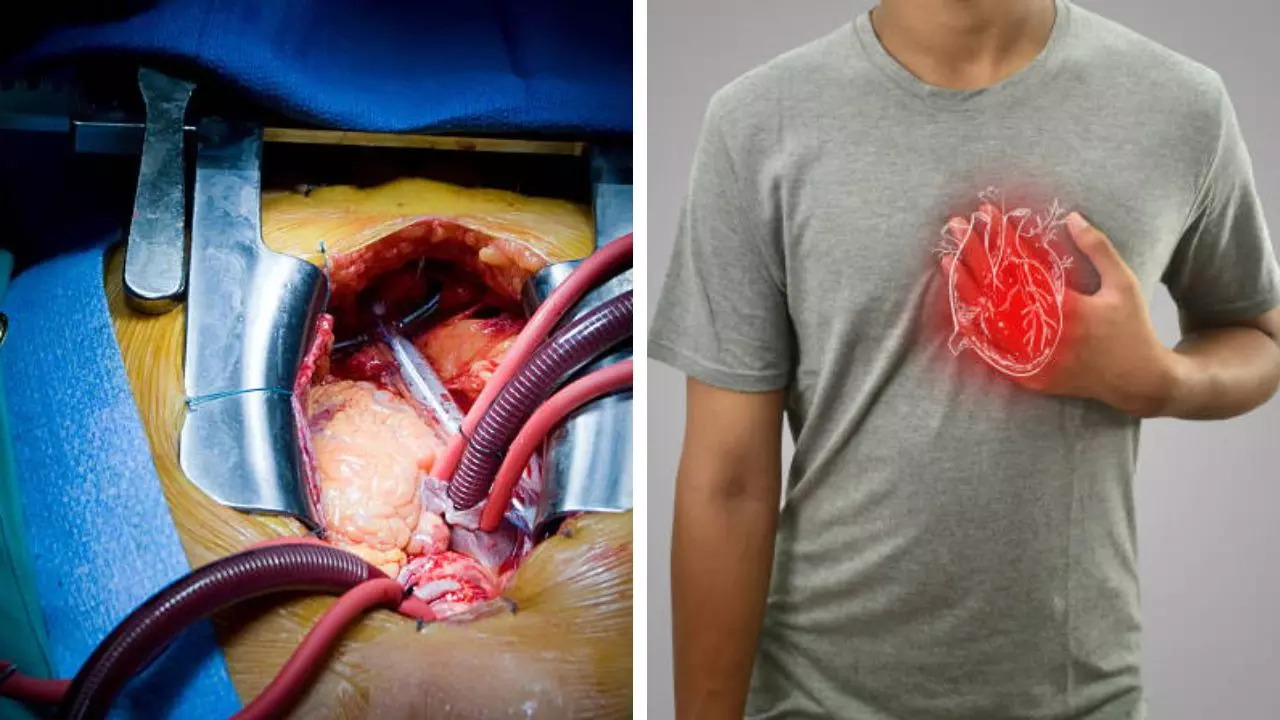Contents
What is the difference between bypass and open heart surgery? Know their purpose and dangerous side effectsWhat is the purpose of bypass vs open heart surgery?What are the side effects of bypass and open heart surgery?What happens in bypass and open heart surgery?Bypass Procedureopen heart surgeryWhat is the survival rate of both the surgeries?
What is the difference between bypass and open heart surgery? Know their purpose and dangerous side effects
Both bypass and open heart surgeries are extremely important, successful and in demand across the world as they help treat and cure many cardiac problems that cannot be cured with medicines alone. While open heart surgery is performed by making an incision in the patient’s chest and directly reaching the heart, bypass surgery involves creating an alternate route to direct the blood flow. Both open heart surgery and bypass surgery have their own benefits. Read on to know in detail.

Though both have their own applications and benefits, you need to know which one is necessary.
Both open heart surgery and bypass are among the most popular and effective treatments for most heart diseases and conditions. According to doctors, while both have their own applications and benefits, you need to know which one is better for you.
While doctors perform open heart surgery by making an incision in your chest and accessing your heart directly, bypass creates alternate routes to direct blood flow.
What is the purpose of bypass vs open heart surgery?
Doctors say coronary artery bypass surgery can treat coronary artery disease – which occurs when the major arteries of your heart become blocked due to a build-up of plaque – that causes high cholesterol levels. And so, if your heart doesn’t get enough oxygen, you may suffer a heart attack, which can even be fatal.
Open-heart surgery refers to any heart procedure that involves opening areas beyond your ribs. These surgeries are usually needed to repair damaged parts of your heart, replace valves, treat congenital abnormalities, insert medical devices and perform a heart transplant.
What are the side effects of bypass and open heart surgery?
Doctors say that like all other procedures, any heart-related surgery is not devoid of any side effects, some of which are as follows:
- Excessive bleeding
- arrhythmia – also called irregular heartbeat
- blood clots
- damage to other organs, such as the kidneys, liver, or lungs
- Infections
- inflammation
- pneumonia and other breathing problems
- Death
What happens in bypass and open heart surgery?
According to doctors, both bypass and open heart surgery can be explained in detail:
Bypass Procedure
This surgery usually takes 3-6 hours, in which your surgeon makes an incision to access and remove a blood vessel from somewhere in your chest, arm or leg, which is used as a bypass graft.
A special device is then used to spread your ribs to reach your heart and redirect blood flow to the artificial heart-lung machine. Next, a new vessel is added and once your graft is fitted, the doctor can restart your heart by giving you an electrical shock if needed.
open heart surgery
In open heart surgery, the surgeon will make an incision in your chest to reach your breastbone and your heart will be temporarily connected to a heart-lung bypass machine to keep blood flowing throughout your body.
Your heart will then be removed and the heart of a deceased donor will be carefully attached to yours.
What is the survival rate of both the surgeries?
Experts say the success of any heart surgery depends on several factors, such as the patient’s overall health, other underlying health conditions and how complex the surgery is.
In a 2021 study, researchers found that the operative mortality rate of coronary artery bypass surgery was 2.2 percent — meaning that 2.2 percent of people died within 30 days of surgery.
Get the latest news on Times Now along with the latest updates and top headlines from health and around the world.


